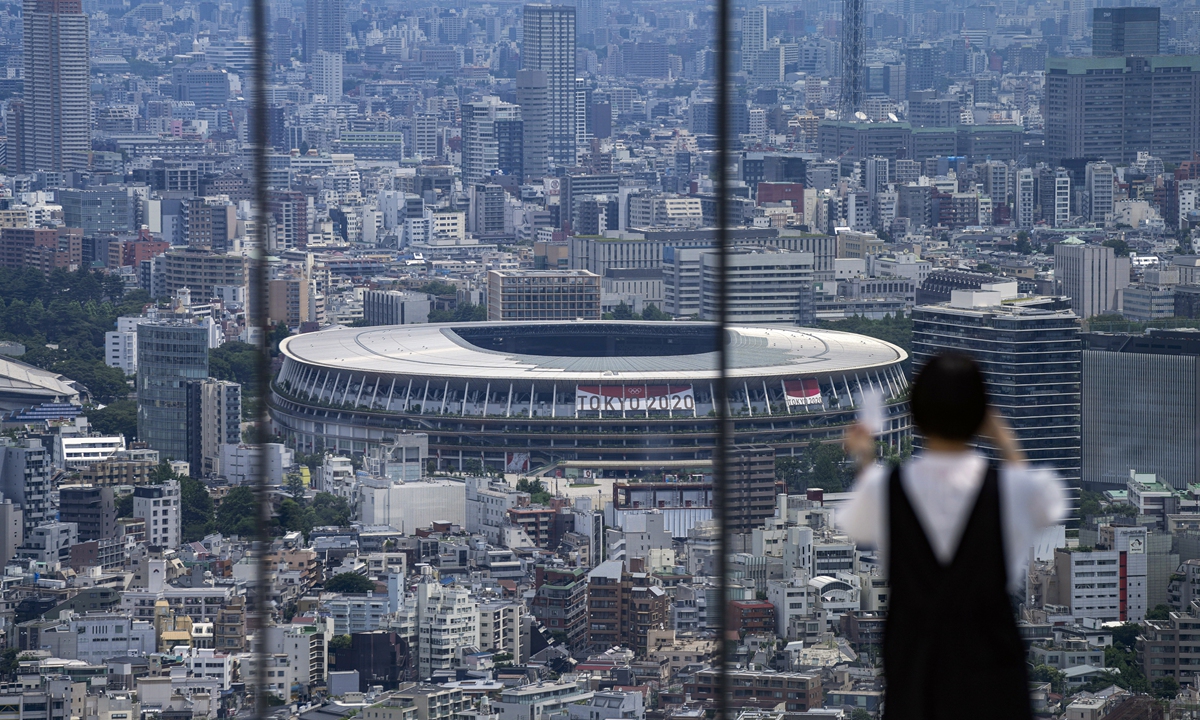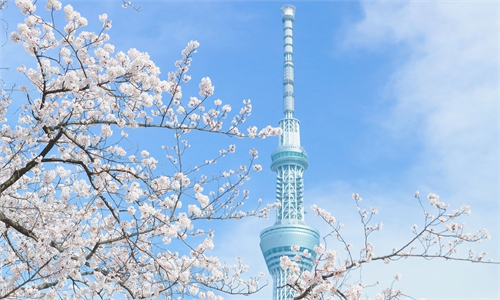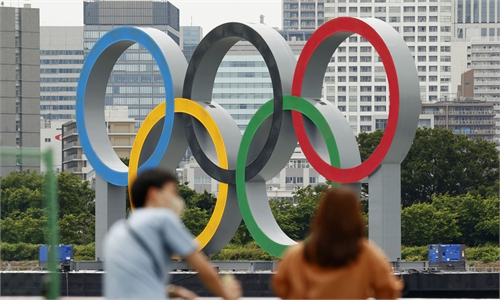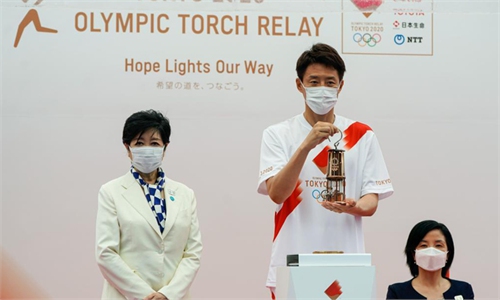Heat risks add to challenges for Tokyo Olympic Games

A resident wearing a protective mask takes a picture from an observation deck as the National Stadium, where the opening ceremony of the Tokyo 2020 Olympics will be held in less than two weeks, is seen in the background on Saturday in Tokyo, Japan. Photo: VCG
Searing heat, dripping humidity, and face masks: It's going to be a sweaty Tokyo Olympics and while coronavirus measures are top priority, heatstroke remains a serious risk, experts warn.
Long before the pandemic forced Tokyo 2020's postponement, the Japanese capital's brutal summer heat was the main health concern for organizers.
While the Games have been held in places that are hotter or more humid than Tokyo, such as Athens, Japan's sweaty summers offer both, in an unpleasant and sometimes deadly combination.
Organizers have moved the Olympic marathon and racewalks to the northern island of Hokkaido, hoping to outrun temperatures that can hit 37 C and humidity over 80 percent.
And with fans now banned from nearly all Games events over virus fears, the risk of large crowds sizzling in the sun is no longer a concern.
But athletes, who will have little time to acclimatize because they are only allowed to arrive just before competition, could still suffer.
"Holding the games during July and August was a serious issue even before the coronavirus pandemic," Haruo Ozaki, chairman of the Tokyo Medical Association, told reporters recently.
"There are still high risks of heatstroke at events such as competitive walking, triathlon, and beach volleyball," even after moving the marathon and racewalking, he warned.
At test events in summer 2019, organizers rolled out a variety of anti-heat measures: 1,360 tons of ice to cool athletes, tents for shade, ice cream for volunteers and mist fans and artificial snow for spectators.
Even so, several people were treated for suspected heatstroke at a beach volleyball event and 10 people including athletes fell ill at a rowing test event.
Ironically, Tokyo won its bid to host the Olympics Games, beating out rivals including Doha, in part by boasting of its "mild" weather.
But the city has been notorious for its stifling summer for years. The last time it hosted the Games, in 1964, the event was shifted to October to beat the heat.
"Spectators and volunteers can take off their masks if they feel uncomfortable, just making sure they keep a distance from crowds," said Shoko Kawanami, a professor at the University of Occupational and Environmental Health, in western Japan.
AFP



